January changed to February and in Lapland that means the daylight increases every day with several minutes. Now the daylight lasts for approx. 8 hours already. To think, just one and a half months ago there were practically no daylights at all and now it is already 8 hours! Moving towards the midnight sun….
This is the time of the year when ice-fishing season starts. You can read my post about ice-fishing for beginners here. The most interested fishermen have of course been ice-fishing already for a couple of months, but because of the lack of daylight but also because of the cold period we have had, with temperatures around -20 degrees Celsius, the experience of an ice-fishing day would not have been all pleasant.
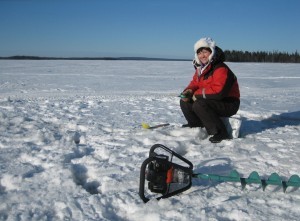 Even if the outdoor temperature is around 0 degrees, spending several hours outdoors, mostly sitting without moving, requires warm clothes. Best chances not to be cold you have wearing not only one warm cloth, but several layers, so to say. I use even up to 7 layers on my upper body and about 4 layers on my legs to keep me warm for several hours ice-fishing. I would definitely not enjoy ice-fishing if I had to be freezing all the time!
Even if the outdoor temperature is around 0 degrees, spending several hours outdoors, mostly sitting without moving, requires warm clothes. Best chances not to be cold you have wearing not only one warm cloth, but several layers, so to say. I use even up to 7 layers on my upper body and about 4 layers on my legs to keep me warm for several hours ice-fishing. I would definitely not enjoy ice-fishing if I had to be freezing all the time!
Starting with underwear in natural material, such as cotton. Then something woolen like very fine woolen underwear, i.e.Ruskovilla, Merinovilla or TAM-SILK wears. Then some colleges; both sweater and trousers. On these, a waistcoat or a sweater, or both in fleece material and a windproof jacket. On top of everything I use a very warm overall. The overall should be both windproof and waterproof. It is very easy to undress the overall in case the sun would shine and you feel you just have too much on. It is really easier to undress than to put more on, which you do not want to carry with you.
You find more of my stories about ice-fishing expeditions here.
 The hands and feet are important to keep warm, but at the same time you should be able to do quick movements when you have a catch. They should also be easy to take off quickly when needed to get the line and the fish up on the ice. One way to keep them warm is to buy hand and feet warmers from fishing equipment shops or from Motonet. But those I use only in extreme conditions. They keep your hands and feet warm for about 6 hours.
The hands and feet are important to keep warm, but at the same time you should be able to do quick movements when you have a catch. They should also be easy to take off quickly when needed to get the line and the fish up on the ice. One way to keep them warm is to buy hand and feet warmers from fishing equipment shops or from Motonet. But those I use only in extreme conditions. They keep your hands and feet warm for about 6 hours.
But also warm leather gloves with sheep wool lining would do. On your feet you should use rubber boots with woolen lining. The boots should be big enough to fit two pairs of woolen socks. Rubber boots could be needed on the ice when there is water coming up from the holes. The circumstances on the ice could also suddenly change from snow to quite deep water (without jeopardizing the safety on the ice, I ensure you. I will tell you more about that in another post.)
But definitely big rubber boots, especially in spring time.
The stool you are sitting on could be of the model you buy from a fishing equipment store, or you could make one yourself, from Styrox, which is a warming material and very light also to carry.
If you are lucky and get a lot of catches, you probably do not need to think about the cold, but if the fish is lazy and the waiting time is long, you probably also want to get up and move a little. One thing is of course to make more holes, because that warms you up, really. Both a hand worked auger and a power auger requires some muscle exercises, that would get you warm. Another thing to do when feeling cold, is to take a break and move towards a “laavu”, lit the fire by the fireplace and enjoy a nice cup of some warm drink. Some people call the laavu a hootchie in English.
In some places in Lapland, on some lakes, but also in the coastal area of northern Sweden, there is a habit to build like small houses on skids to transport with you behind the snowmobile when you go ice-fishing. These sheds keep you from the freezing cold winds that could disturb an otherwise well planned ice-fishing expedition. The sheds have no floor inside, so you can drill holes in the ice and sit inside the shelters ice-fishing. Inside the sheds there could also be warming equipment working with gas or other kinds of heating systems. In case you have such a shed to use, you could go for longer ice-fishing expeditions without “laavus” nearby. You could fry your sausages and warm your drinks inside the shed. I will explain more about these sheds in another post.


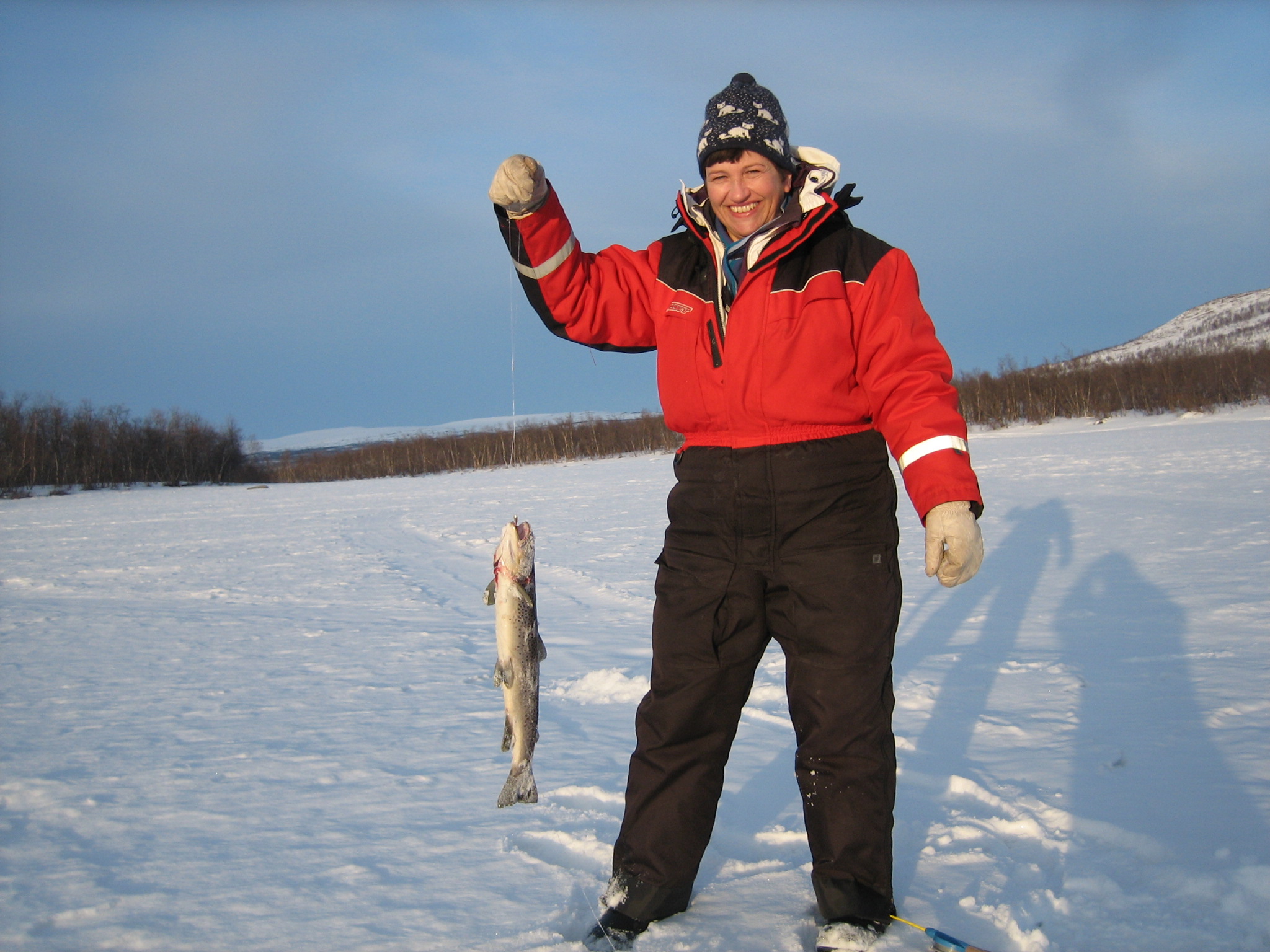
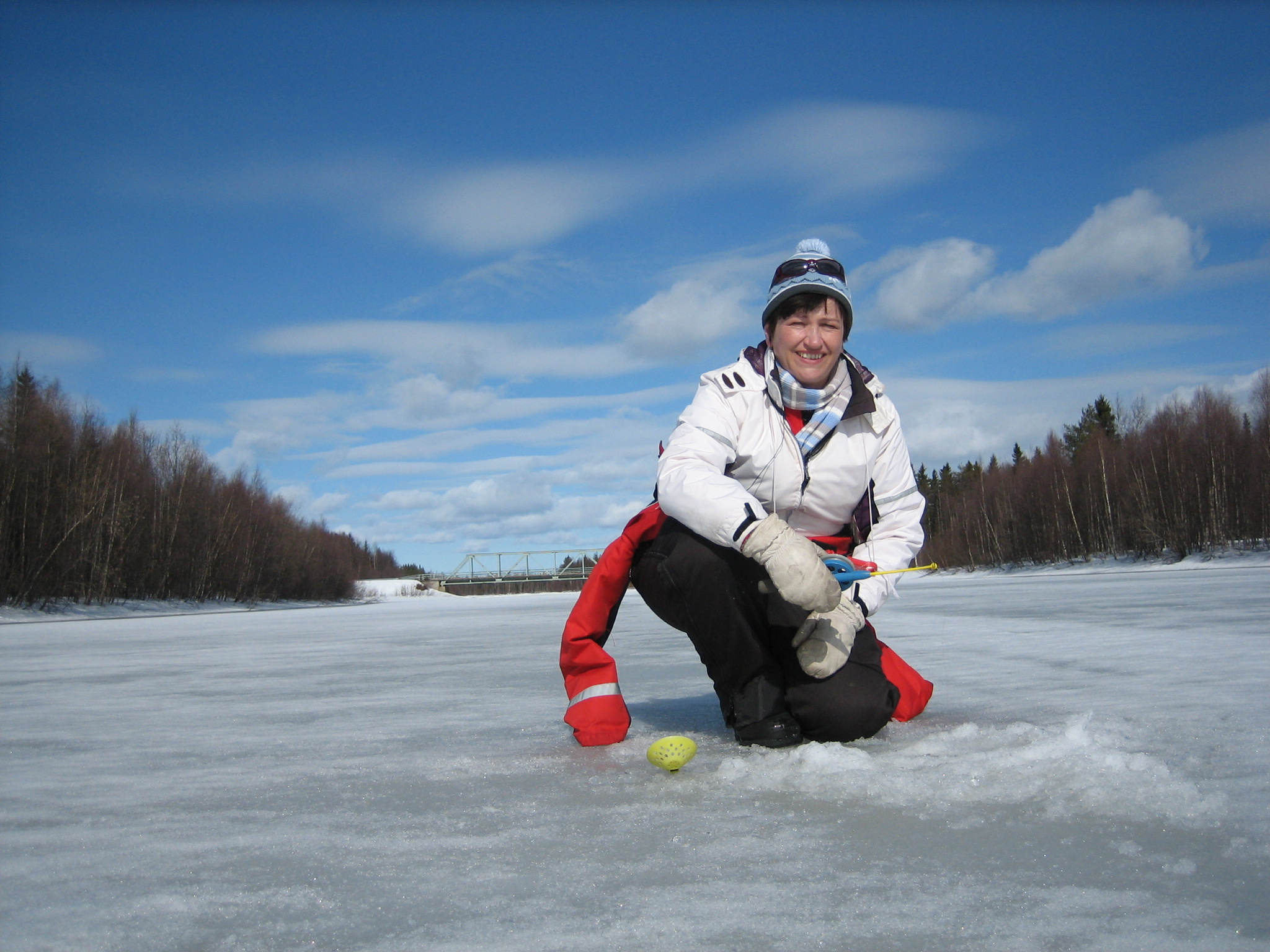

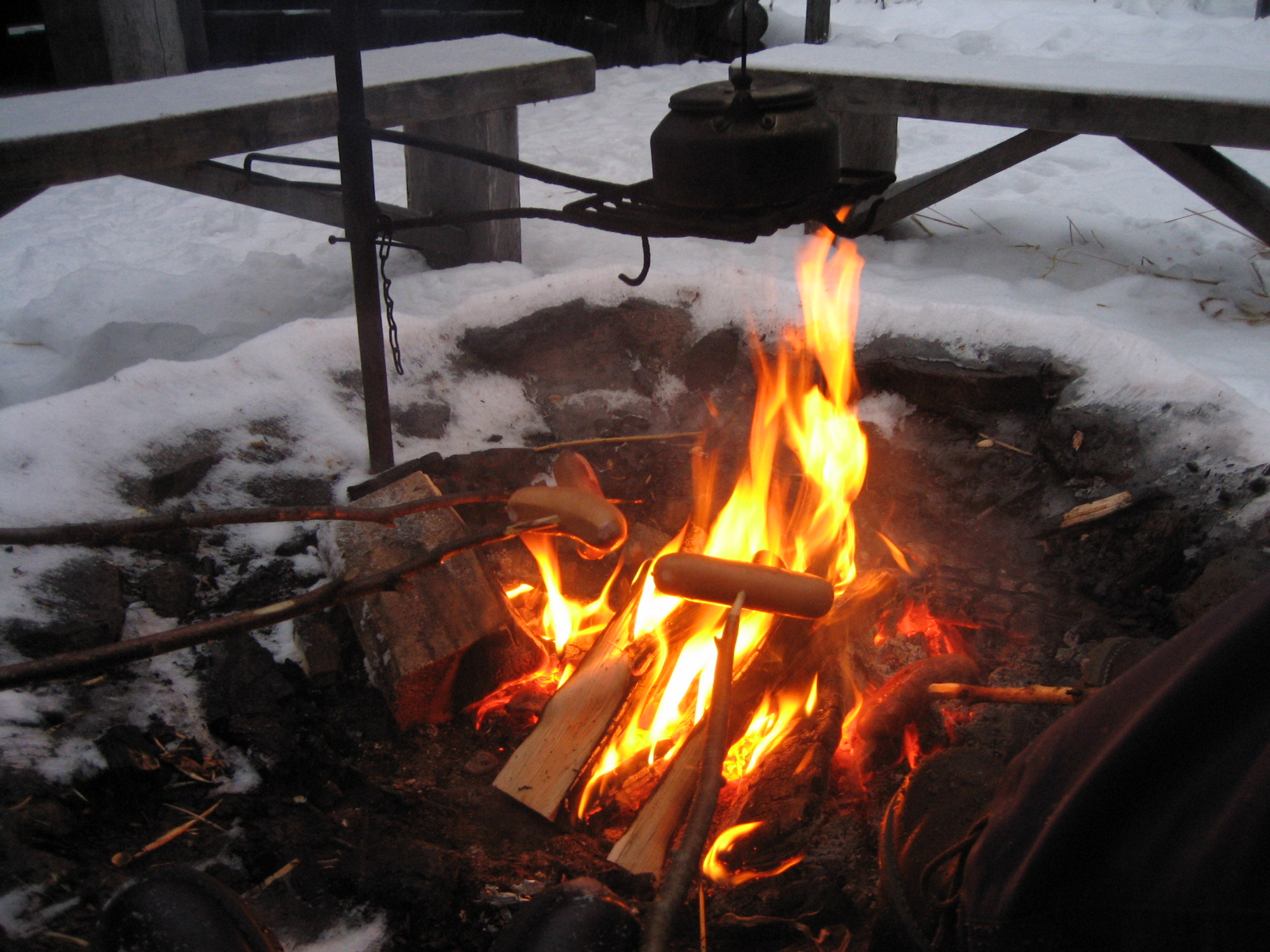

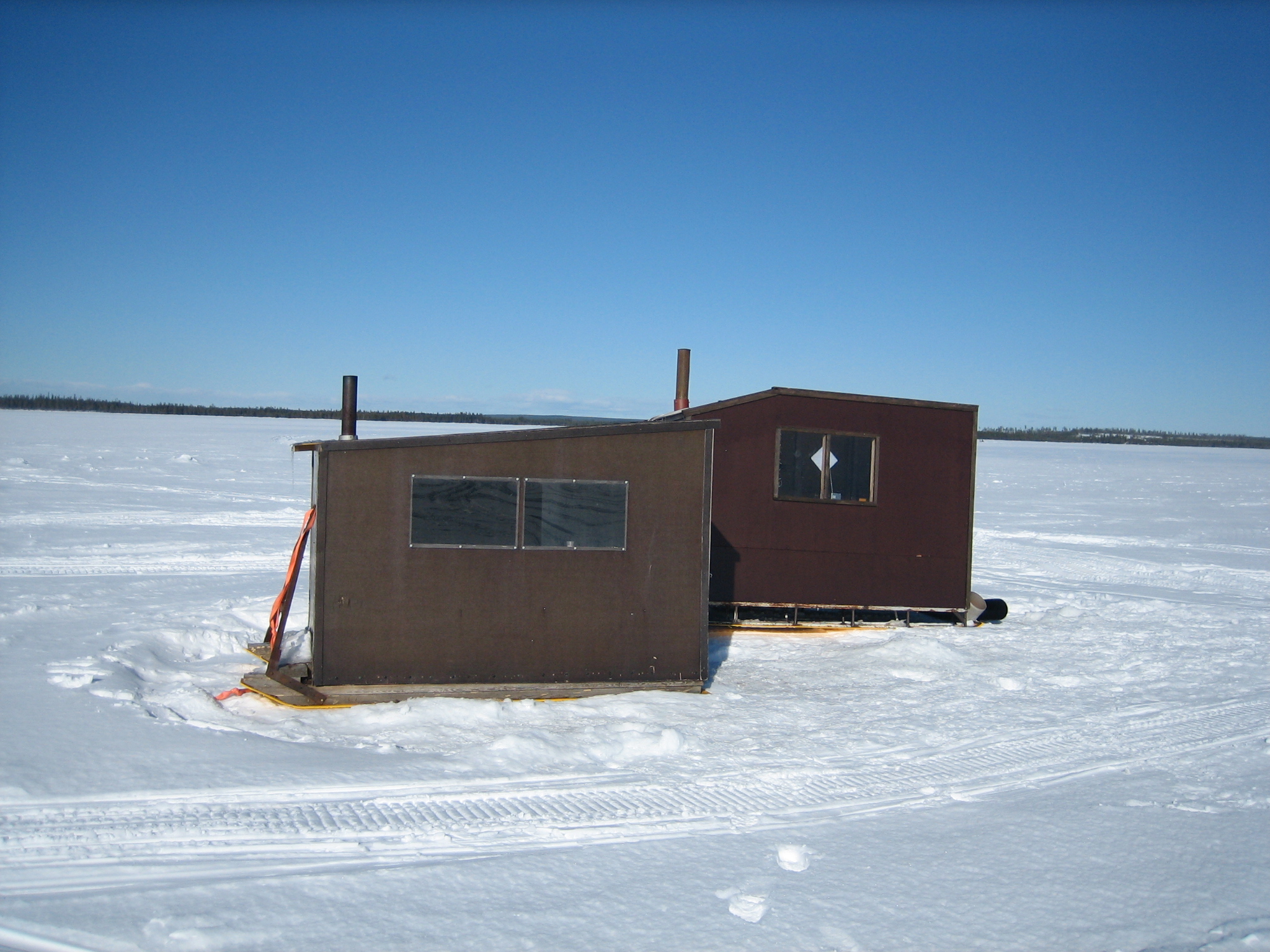
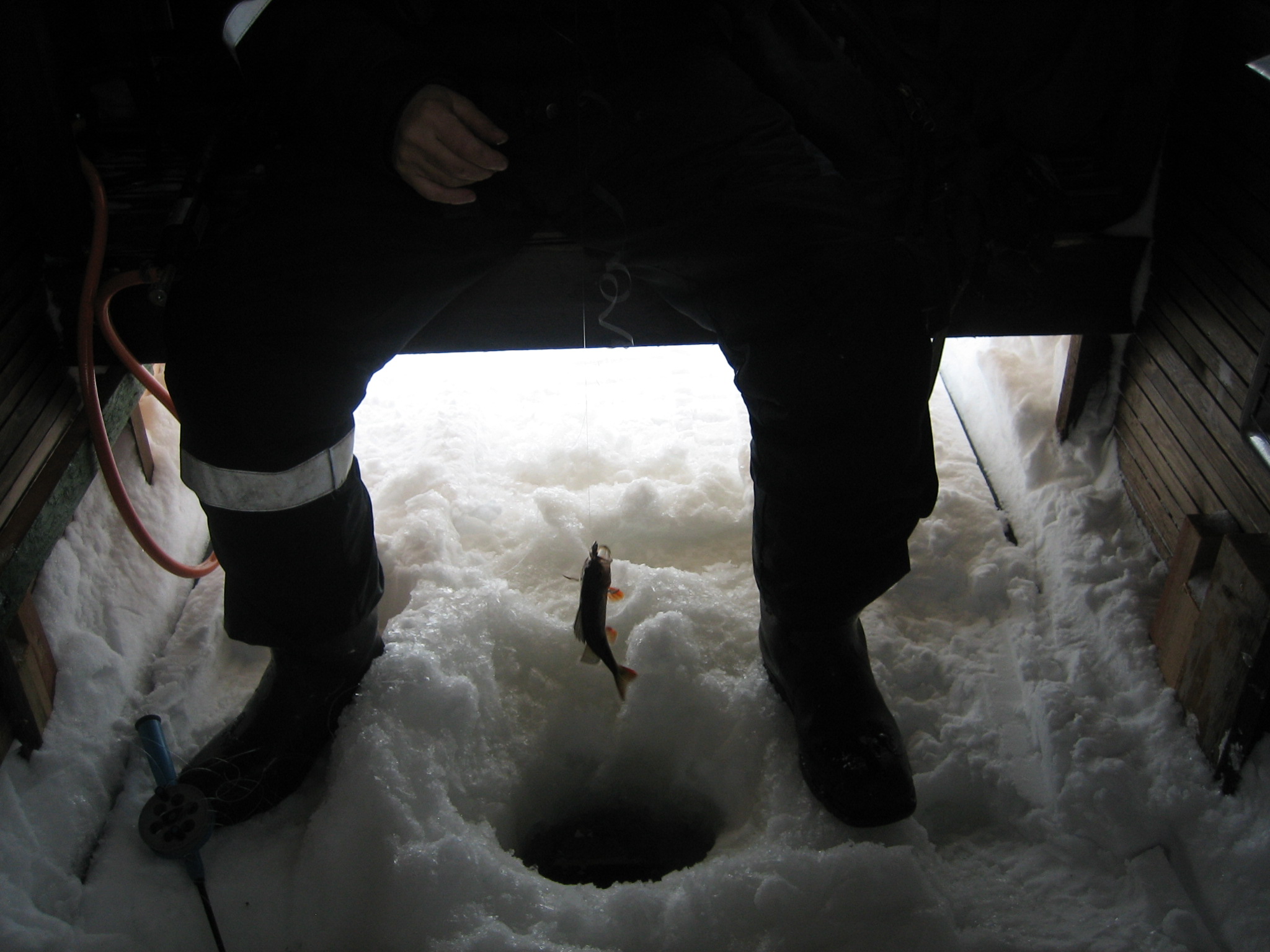
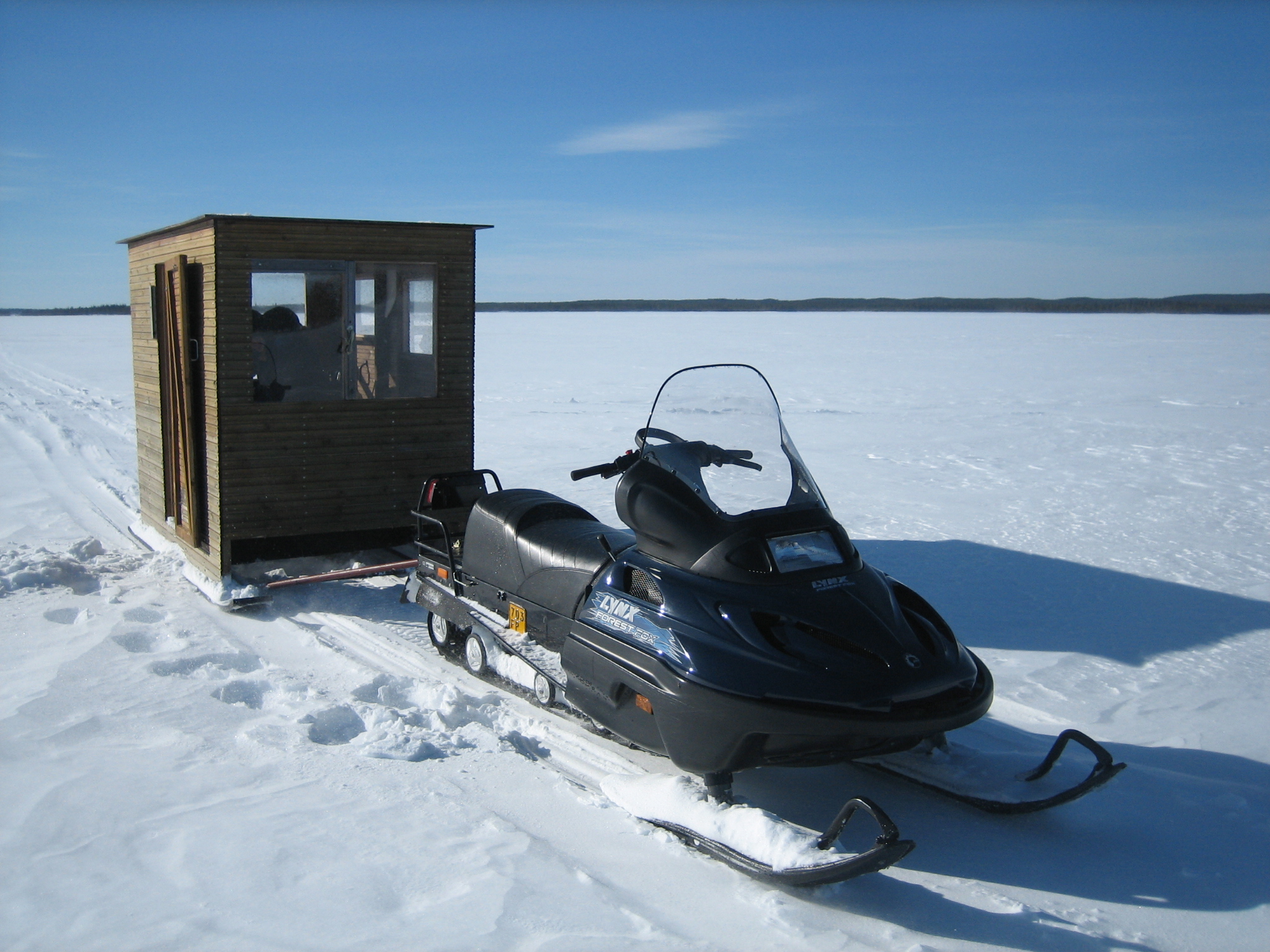
Pingback: Ice – an unpredictable element | Grandma in Lapland